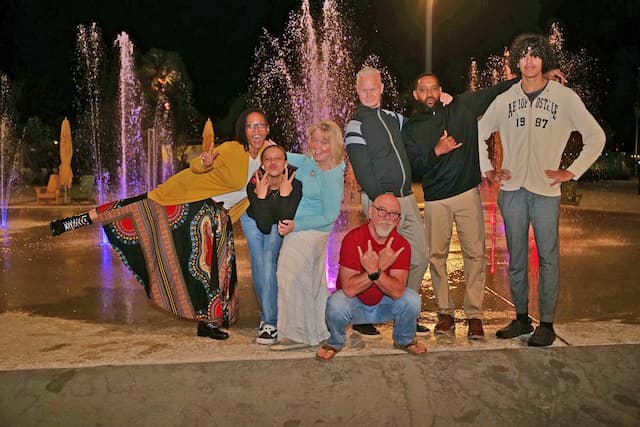What Makes Christian Love Unique

One of the key differences between Christians and those of other faiths or worldviews is the expression of love. Even the newest of Christians knows that love is central to Christianity. Love defines God’s relationship with us. Love explains why Jesus came to earth and why He died on the cross.
“For God loved the world in this way: He gave his one and only Son, so that everyone who believes in him will not perish but have eternal life” (John 3:16).
Love also defines how we are to live our lives as followers of Christ. Jesus took all the commands of God and summed them up in two commands.
“Love the Lord your God with all your heart, with all your soul, and with all your mind. This is the greatest and most important command. The second is like it: Love your neighbor as yourself. All the Law and the Prophets depend on these two commands” (Matt. 22:37-40).
Some faith groups will argue that their way is a way of love, but there remains something wholly unique in the love we’re shown through Christ—and the love we show to others because of Christ!
I found a unique expression of that love in the book The Rise of Christianity by Rodney Stark. Stark pointed to an epidemic that hit the Roman Empire around 260 A.D. There was a heavy mortality rate with this epidemic. We know all about pandemics, but even as the medical community worked to find a vaccine, there were certain things we knew to do to lessen the risk for ourselves. That was not the case in the third century. When this epidemic hit the Roman Empire and people started dying, the only thing people knew to do was run away—which is exactly what they did. Dionysius, a third-century bishop, wrote this about “the heathen.”
“At the first onset of the disease, they pushed the sufferers away and fled from their dearest, throwing them into the roads before they were dead and treated unburied corpses as dirt, hoping thereby to avert the spread and contagion of the fatal disease; but do what they might, they found it difficult to escape.”
Christians, on the other hand, took a wholly different approach.
“Most of our brother Christians showed unbounded love and loyalty, never sparing themselves and thinking only of one another. Heedless of danger, they took charge of the sick, attending to their every need and ministering to them in Christ, and with them departed this life serenely happy; for they were infected by others with the disease, drawing on themselves the sickness of their neighbors and cheerfully accepting their pains. Many, in nursing and curing others, transferred their deaths to themselves and died in their stead.”
 These believers took great risk to care for one another, but it didn’t stop there. They didn’t just care for those in their family or church; they cared for those outside the faith. A century later, the emperor Julian, who was no fan of the Christians, noted that “the impious Galileans support not only their poor, but ours as well, everyone can see that our people lack aid from us.”
These believers took great risk to care for one another, but it didn’t stop there. They didn’t just care for those in their family or church; they cared for those outside the faith. A century later, the emperor Julian, who was no fan of the Christians, noted that “the impious Galileans support not only their poor, but ours as well, everyone can see that our people lack aid from us.”
Julian complained that the Christians were showing up his own pagan priests and people; they needed to step up their game and “equal the virtues of Christians.” It never happened. [Rodney Stark, The Rise of Christianity (Harper, 1996, pp. 82-84]
There’s a reason it never happened. Religion is a way to appease the gods. Different belief systems call for different things, but it boils down to doing something for the god, not for each other. When Christ stepped into our world, He brought to us a faith that is grounded in the love of God for us, a hope that we are secure in that love, and a love that can be freely expressed to others because we have that solid faith and sure hope.
“We love because he first loved us” (1 John 4:19).
Without the basis of love found in Christ, our expressions of love are largely self-centered. We love because of how we benefit from the one we love. When tragedy hits, as it did with the Romans in the third century, the natural thing to do was to look out for yourself. There was absolutely no motivation to help others.
A life that is transformed by the love of Christ is willing to love others just out of love for Christ. A life that is transformed by Christ is willing to invest—and even risk—for the sake of others. As we grow in Christ, we grow in the realization that as we freely love others, we are expressing love to Christ.
“For I was hungry and you gave me something to eat;
I was thirsty and you gave me something to drink;
I was a stranger and you took me in;
I was naked and you clothed me;
I was sick and you took care of me;
I was in prison and you visited me” (Matt. 25:35-36).
Go ahead. Take the “risk” of helping and serving someone else.
“‘Truly I tell you, whatever you did for one of the least of these brothers and sisters of mine, you did for me” (Matt. 25:40).
Subscribe to this blog or like our Facebook page. And share this post with others.
If you would like a printable version of this, check out PrintFriendly.










